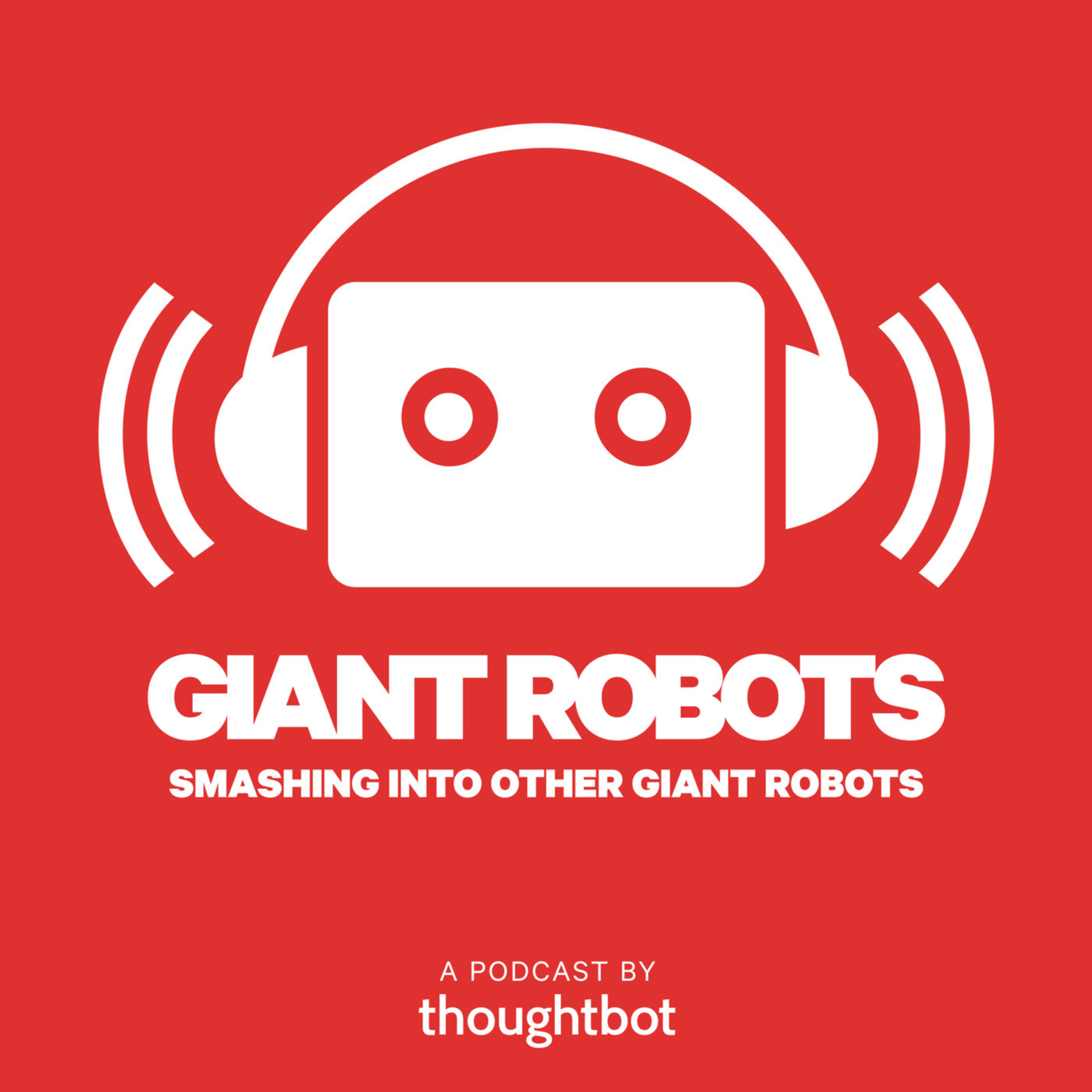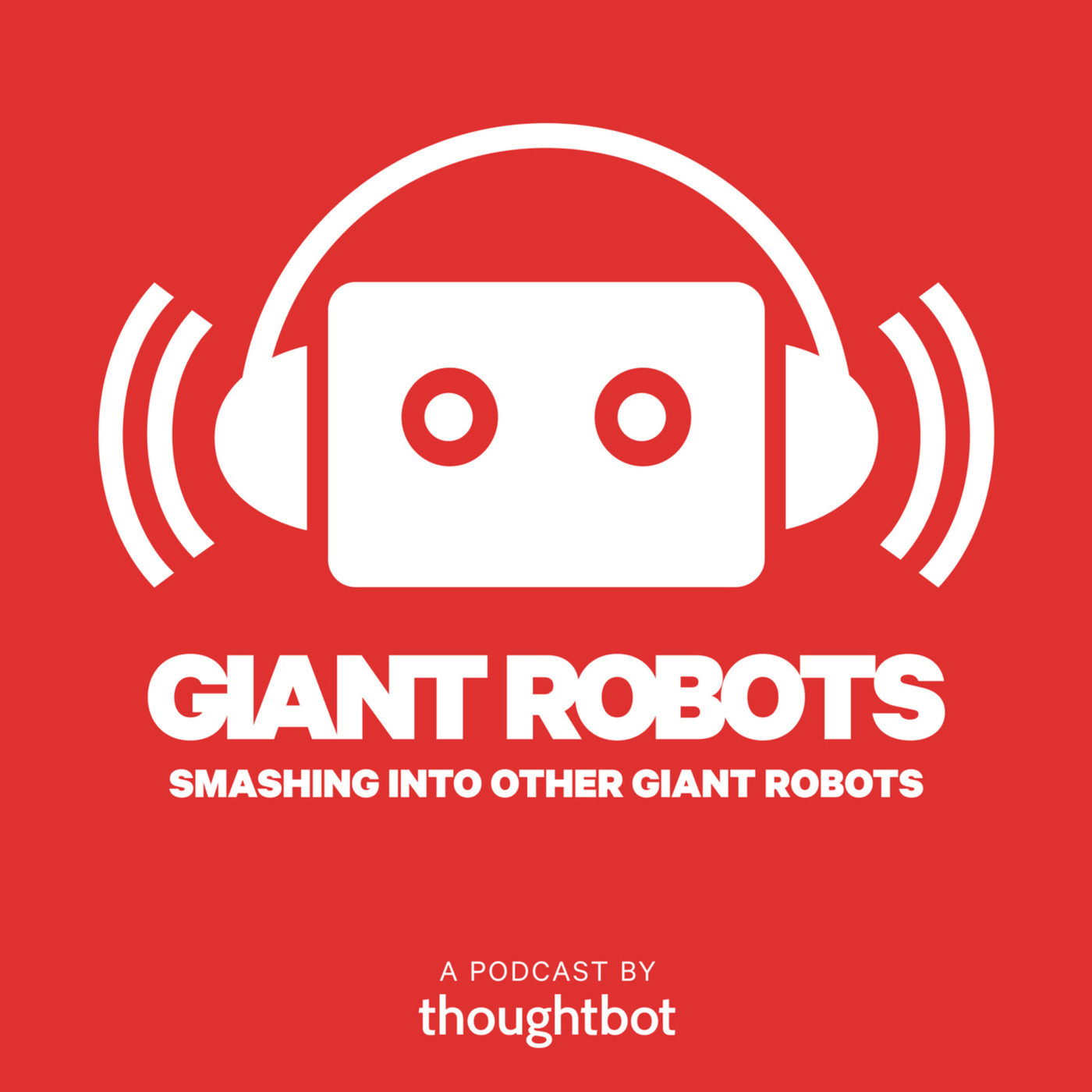Giant Robots Smashing Into Other Giant Robots
Episodes
-

82: Teach all the things (Matt Knox)
January 19th, 2014 | Season 2 | 38 mins 25 secs
This week's episode features Matt Knox of Twitter. Matt is a part of Twitter's university team which teaches new Twitter recruits about the company. He works as an engineer as well in order to stay current. Matt discusses his background as an engineer, and how he got into teaching. He discusses using Storm, essentially a real-time Hadoop, for Twitter. Ben and Matt talk about the importance of keeping a portfolio as a programmer and deliberate practice routines for coding, and more.
-

81: An Agent of Change (Seth Godin)
January 12th, 2014 | Season 2 | 33 mins 41 secs
In this week's episode, Ben Orenstein is joined by best selling author, Seth Godin. Seth describes himself as an entrepreneur, a blogger, and an agent of change. They discuss art, frustration, and the endless pursuit of perfection as an artist. In his newest book, The Icarus Deception, Seth discusses seeking art in your work and looking beyond standards and production. They talk about the importance of finding connections with other artists and people who can provide meaningful feedback. They discuss several of Seth's blog posts which are linked below, and much more.
-

80: Growing Business (Josh Pigford)
December 22nd, 2013 | Season 2 | 28 mins 11 secs
This week on Giant Robots, Ben Orenstein chats with Josh Pigford about time management, entrepreneurship and farming
-

79: The Gentle Wise One (Uncle Bob Martin)
December 15th, 2013 | Season 2 | 37 mins 59 secs
This week on Giant Robots, Ben Orenstein talks with Uncle Bob Martin about functional programming, ethics, and writing.
-

78: Fancy Pants (Chris Lindland)
December 8th, 2013 | Season 2 | 28 mins 6 secs
This week on Giant Robots, Ben Orenstein talks with Chris Lindland, CEO of Betabrand.com about online fashion, self-generating product and dress-pant-sweatpants.
-

77: A Beautiful Thing (Harold Giménez)
December 1st, 2013 | Season 2 | 51 mins 16 secs
This week on Giant Robots, Ben Orenstein speaks with Harold Giménez, Heroku postgres leader, about postgres, data management, and beer brewing.
-

76: The Boutique Agency
November 24th, 2013 | Season 2 | 40 mins 51 secs
Ben Orenstein speaks with Alex Kesler, founder and CEO of inSegment about digital marketing, GTD and productivity.
-

75: Embedding Democracy (Catherine Bracy)
November 17th, 2013 | Season 2 | 31 mins 21 secs
This week Ben Orenstein interviews Catherine Bracy, Director of Community Organizing at Code for America.
-

74: Fancy Scala (Sean Griffin)
November 10th, 2013 | Season 2 | 32 mins 5 secs
Ben Orenstein speaks with thoughtbot developer Sean Griffin about scala and ruby.
-

73: Spooky Robots Haunting other Spooky Robots (Drew Neil)
November 3rd, 2013 | Season 2 | 33 mins 3 secs
Ben Orenstein speaks with Drew Neil, creator of vimcasts.org about teaching writing and workshopping vim.
-

72: Up in the Mountains (Nathan Barry)
October 27th, 2013 | Season 2 | 32 mins 39 secs
This week on The Giant Robots Podcast, Ben Orenstein chats with Nathan Barry about book writing, teaching and self employment.
-

71: The Power of the Truth
October 20th, 2013 | Season 2 | 39 mins 53 secs
Josh Clayton and Ben Orenstein interview each other about their managing director positions.
-

70: Let Your Freak Flag Fly
October 13th, 2013 | Season 2 | 40 mins 17 secs
Ben Orenstein speaks with Jeff Atwood about Discourse, forum software, and soylent.
-

69: Geocoding in the Now
October 6th, 2013 | Season 2 | 14 mins 50 secs
Ben Orenstein interviews Josh Clayton and Laila Winner on their book, Geocoding on Rails.
-

68: Simplicity and Elegance
September 29th, 2013 | Season 2 | 34 mins 10 secs
Ben Orenstein and Paul Farnell, CEO of Litmus, talk about starting up, business practices, and Litmus.
-

67: The Data Optimist
September 22nd, 2013 | Season 2 | 29 mins 41 secs
Ben Orenstein and Hilary Mason, Data Scientist in Residence at Accel Partners, talk about Data Science, Bitly and Cheeseburgers.

